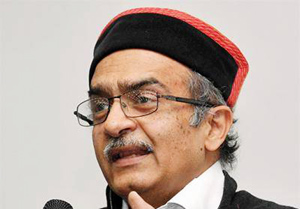New Delhi, Mar 18: Dissident AAP leader Prashant Bhushan has written a fresh note to party chief Arvind Kejriwal, highlighting the "long-pending" issues he has been trying to raise.
The activist-lawyer has also rubbished reports that he has offered to quit the National Executive if Kejriwal pays heed to his demands.
"I have not offered to resign from the National Executive, but yes, I have written a note to Arvind regarding the long pending issues," Bhushan said.
He, however, did not elaborate on the content of the note or the issues he has raised with Kejriwal or when it was sent to the Delhi Chief Minister.
"The issues are the same that we are talking about. Its just more crystalised (in the note)," Bhushan said.
Sources close to Yogendra Yadav, too, denied that he has offered to quit along with Bhushan. The party will hold its third round of meeting with Yadav's representatives today, sources added.
The lawyer-activist had highlighted several issues including inner party democracy (Swaraj), one-upmanship in the party and bringing in high level of transparency in the functioning of the organisation.
On Monday, Bhushan had sent an SMS expressing his desire to meet him and put an end to all the controversy. However, the Delhi chief minister responded saying that they will meet soon, but only after the on-going budget session.





Comments
Add new comment